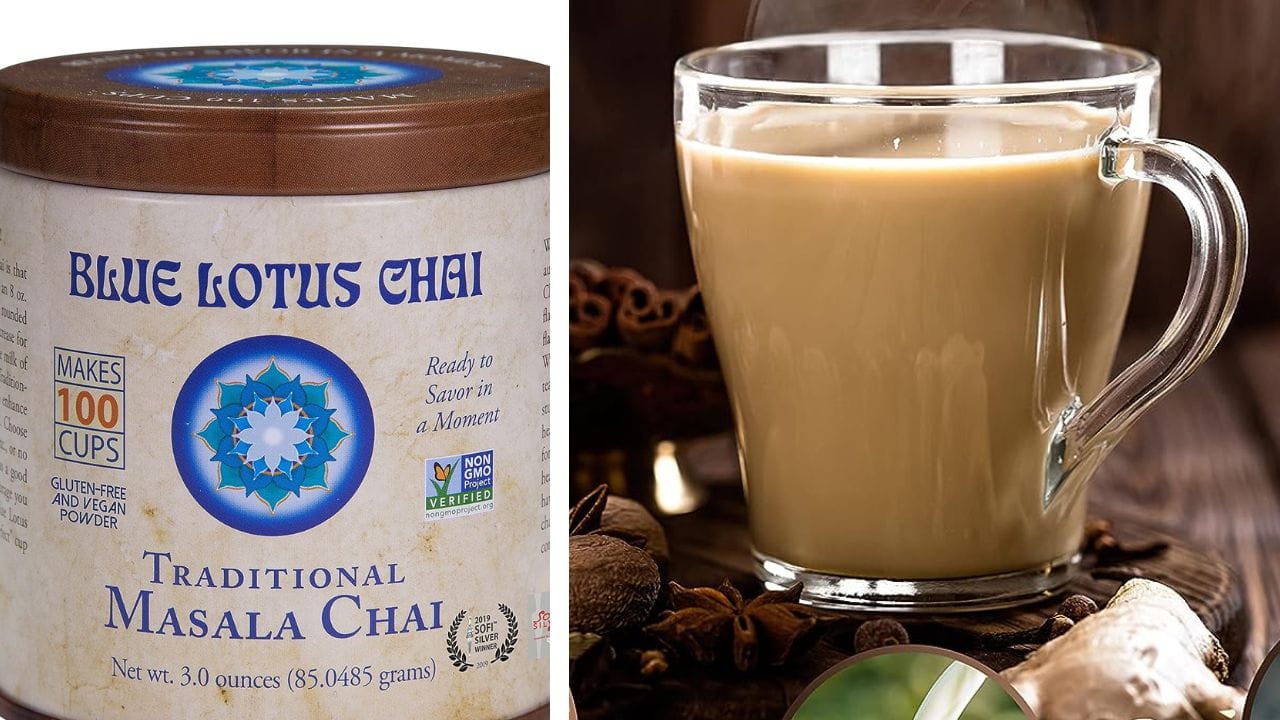Unveiling the Mysteries of Blue Lotus Tea: Does It Contain Caffeine?
Delve into a realm of serene relaxation without the jolt of caffeine.

In the tranquil world of herbal teas, each variety brings its own unique bouquet of flavors, benefits, and experiences. Among these, Blue Lotus Tea emerges as a particularly intriguing brew. Often celebrated for its soothing properties and enchanting floral aroma, it prompts a common query among tea enthusiasts and health-conscious individuals alike: Does Blue Lotus Tea contain caffeine?
Key Takeaways:
- Blue Lotus Tea is naturally caffeine-free.
- It offers a range of potential health benefits, including stress relief and improved sleep.
- It can be a great alternative for those looking to reduce their caffeine intake.
What is Blue Lotus Tea?
Originating from the edges of the Nile River and parts of East Africa, the Blue Lotus (Nymphaea caerulea) has been revered since ancient Egyptian times. It is not just its beauty that captivates but also its use in traditional medicine and ceremonies. The tea made from this aquatic plant is known for its dreamy, sedative effects which were highly valued in ancient rituals.
The petals of the Blue Lotus are typically steeped in hot water to produce a light, aromatic tea. This brew is devoid of caffeine, making it an excellent choice for those who are sensitive to stimulants or who prefer a calming cup of tea before bedtime.
Health Benefits of Blue Lotus Tea
While the primary allure of Blue Lotus Tea may be its tranquil properties and historical significance, it also boasts a spectrum of potential health benefits. Studies suggest that this tea may help in relieving stress, promoting relaxation, and enhancing sleep quality. These effects are attributed to the natural compounds in the flower, such as aporphine and nuciferine, which have psychoactive and calming properties.
Moreover, Blue Lotus Tea is sometimes used as an adjunct therapy for gastrointestinal problems. Its mild sedative effects can help soothe the stomach and ease digestion. This makes it not only a beverage of relaxation but also a gentle remedy for digestive discomfort.
Caffeine Content in Herbal Teas
When diving into the world of herbal teas, it's essential to understand that most are naturally free of caffeine. Unlike traditional teas derived from the Camellia sinensis plant (like black, green, or oolong tea), herbal teas are infusions or decoctions made from flowers, herbs, or other plant materials that do not contain caffeine unless blended with tea leaves.
This absence of caffeine makes herbal teas like Blue Lotus an excellent choice for evening consumption or for those looking to avoid caffeine due to personal preferences or health reasons.
Comparing Blue Lotus Tea to Other Herbal Teas
In the vast sea of herbal teas, each variety offers unique benefits and flavors. For instance, chamomile is widely recognized for its calming effects, similar to Blue Lotus, but with a distinctly sweet, apple-like flavor. On the other hand, peppermint tea is prized for its refreshing taste and digestive benefits.
Blue Lotus Tea stands out with its slightly sweet and floral taste, making it not only a tool for relaxation but also a delightful sensory experience. Its rarity and historical significance add an element of luxury and mystique to your tea cup.
Blue Lotus Tea for Stress and Anxiety
In today’s fast-paced world, finding natural ways to reduce stress and anxiety is more important than ever. Blue Lotus Tea serves as a gentle, natural sedative, which can help calm the nerves and reduce stress levels. Its use in ancient ceremonial practices as a means to relieve anxiety further supports its modern-day application in stress management.
The soothing properties of Blue Lotus can be particularly beneficial before bedtime, promoting a peaceful sleep environment and helping individuals unwind after a long day.
How to Brew Blue Lotus Tea
Brewing Blue Lotus Tea is simple and rewarding. Start by placing about 5 grams of dried Blue Lotus flowers in a teapot. Pour hot water (not boiling) over the flowers and let them steep for 5 to 10 minutes. This will allow the delicate flavors and properties of the flowers to infuse the water fully.
For a stronger effect, particularly to enhance the sedative benefits, some prefer to steep the tea for up to 20 minutes. It’s also common to add a touch of honey or lemon to complement the natural flavors of the Blue Lotus.
Incorporating Blue Lotus Tea into Your Routine
Integrating Blue Lotus Tea into your daily routine can be a delightful way to enjoy its benefits. Whether as a morning ritual to start your day on a calm note or as an evening treat to unwind, this tea adapts to your needs. It can also be a wonderful addition to a meditation or yoga practice, enhancing the relaxing effects of these activities.
Summary
Blue Lotus Tea is a caffeine-free herbal tea known for its calming effects and potential health benefits. It offers a unique taste and a rich history, making it a fascinating addition to any tea collection.
Whether you're aiming to cut down on caffeine or eager to delve into the realm of herbal teas, Blue Lotus Tea is a must-try. Click below to discover the Blue Lotus Tea we've carefully chosen for you to experience.

